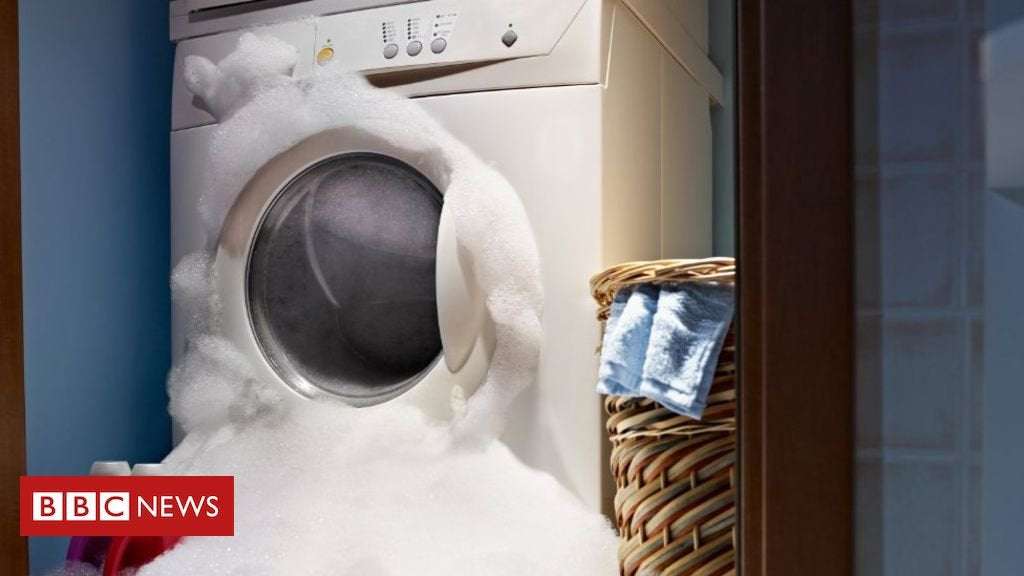Household appliances will become easier to repair thanks to new standards being adopted across the European Union.
From 2021, firms will have to make appliances longer-lasting, and they will have to supply spare parts for machines for up to 10 years.
The rules apply to lighting, washing machines, dishwashers and fridges.
But campaigners for the "right to repair" say they do not go far enough as only professionals - not consumers - will be able carry out the repairs.
The legislation has been prompted by complaints from consumers across Europe and North America infuriated by machines that break down when they are just out of warranty.
Owners are usually unable to repair the machines themselves - or find anyone else to do it at a decent price - so are forced to buy a replacement.
This creates waste and fuels global warming through the greenhouse gases created in the manufacturing process for new machines.
In the US, around 20 states are said to have right to repair legislation in progress.
Under the European Commission's new standards, manufacturers will have to make spares, such as door gaskets and thermostats, available to professional repairers.
These parts will have to be accessible with commonly-available tools and without damaging the product.
Campaigners say individual consumers should also be allowed to buy spares and mend their own machines. But manufacturers said this would raise questions about risk and liability.
Instead, manufacturers will have to ensure that key parts of the product can be replaced by independent professionals.
If British firms want to sell into Europe after Brexit they will have to follow the new rules, which apply from April 2021.
It is estimated that the new standards will ensure that appliances have a longer life. The rules also include provisions to make appliances more energy efficient.
For example, star ratings for the energy efficiency of appliances will be ratcheted up. Current regulations are seen to be outdated, with more than 55% of washing machines sold in the EU ranked A+++ on the label.
The move could directly save €20bn on energy bills per year in Europe from 2030 onwards - equivalent to 5% of EU electricity consumption.
Chloe Fayole of environmental group Ecos said: “From the US to Europe, people are demanding their right to repair things they own because they’re tired of products that are designed to break prematurely.”
Libby Peake from the UK Green alliance told BBC News: “These new standards are a massive step in the right direction and could result in nearly 50 million tonnes of CO2 emissions savings.”
But Stephane Arditi of the European Environment Bureau said: “When repair activities stay in the hands of a few firms, we’re missing an opportunity to make it more affordable and readily available.
“Small independent repairers can make a great contribution to the economy and our society. We need to help them do their job.”

Airazz on October 1st, 2019 at 07:53 UTC »
My fridge broke after almost a decade. I considered just buying a new one but decided to call a repair guy first. He took it away to fix. It took him a week but he managed it and only charged me a hundred euros, which is a pretty sweet deal considering that a new fridge from the same brand would cost close to a thousand.
I won't be repairing appliances myself but I'm happy to know that doing it will be easier for the independent repair people.
Pontus_Pilates on October 1st, 2019 at 06:06 UTC »
I broke my phone screen a few weeks ago. Googled local repair shops and they all charged north of 200€ for screen replacement, one place going as high as 280€. The phone costs 300€ in store.
So I ordered a new screen from China for 50€ and replaced it myself. I was quite suriprised how well it went.
Of course, I no longer have warranty.
leeuwvanvlaanderen on October 1st, 2019 at 06:05 UTC »
Also on the books:
Great legislation.